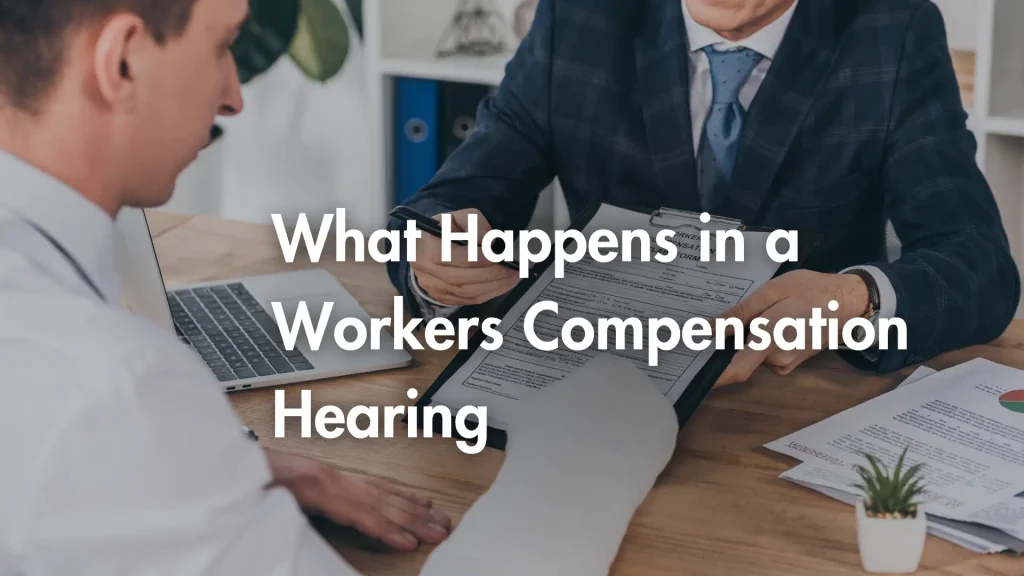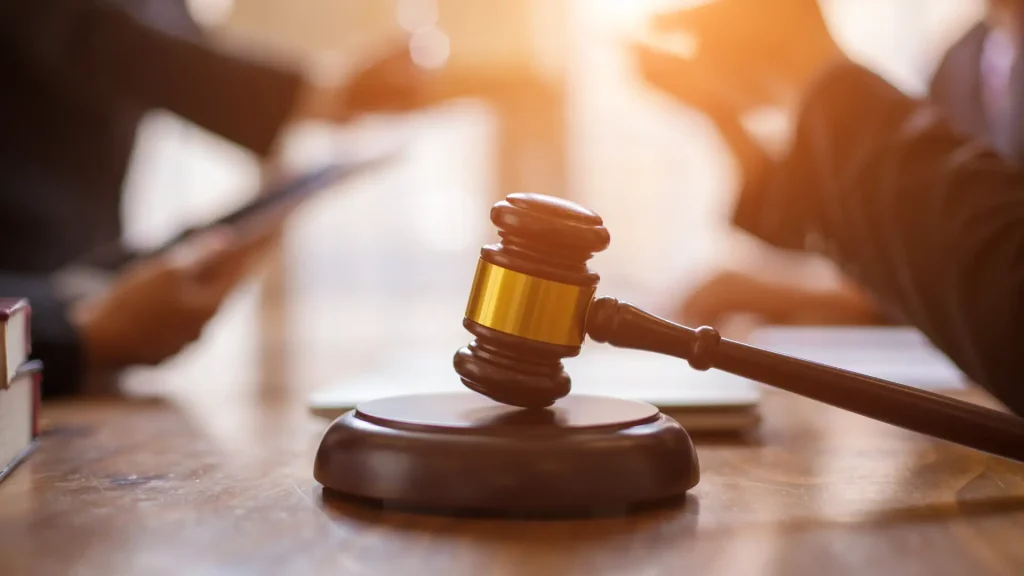
A workers’ compensation hearing is essential to resolving disputes between injured workers and their employers or insurance companies. Familiarizing yourself with what happens in a workers’ compensation hearing in Minnesota can alleviate stress and prepare you for what to expect. Whether you’re dealing with a standard hearing before a compensation judge or commissioner, a status conference, or a Workers’ Compensation Court of Appeals hearing, knowing the steps and potential challenges can make a significant difference in the outcome of your case.
Preparing for the Hearing
Before the hearing, both parties gather evidence to support their claims. This evidence can include medical records, witness statements, and any documentation related to the injury and its impact on the worker’s ability to perform their job. It’s essential to organize and present this evidence clearly and convincingly.
Workers’ Compensation Hearing Questions
During the hearing process, various questions may arise to clarify the facts of the case. Prepare to address questions regarding critical issues about the case, including:
- Injury Circumstances – What were the circumstances of the injury? What happened leading up to the injury?
- Medical Care – What medical treatment has the worker received? What health implications does their injury have?
- Worker’s Capabilities – How has the injury affected the worker’s ability to perform their job? Have they been able to work at all since the injury occurred?
- Worker’s Future – What are the projected long-term impacts of the injury? What is the prognosis for recovery?
What Is a Workers’ Compensation Status Conference Hearing?
A workers’ compensation status conference is a preliminary meeting to discuss a claim’s progress before a formal hearing. It allows both parties to check in and review the case’s progress. There are several benefits to a workers’ compensation status conference hearing, including:
- Issue Resolution – The conference provides an opportunity to identify and address any issues or disputes needing resolution before proceeding to a full hearing.
- Evidence Review – Parties can review the evidence submitted and discuss any additional evidence needed.
- Enhanced Communication – The conference provides a structured environment for both parties to communicate directly with each other and the judge, helping everyone stay on track.
- Settlement Negotiations – Parties may use this opportunity to negotiate a settlement or work towards an agreement without needing a more extensive hearing.
What Happens in a Workers’ Compensation Hearing?
A judge from Minnesota’s Office of Administrative Hearings Workers’ Compensation Division will likely oversee your case. While these hearings are typically less formal than a court trial, they follow the same steps, including:
- Opening Statements – Both parties make brief opening statements outlining their positions. The injured worker (or their attorney) and the employer (or their insurance company’s attorney) present an overview of their arguments.
- Presentation of Evidence – The injured worker presents evidence to support their claim for benefits. This includes medical reports, doctor testimony, and other relevant documents. The employer or insurance company then presents their evidence, which may challenge the worker’s claims or suggest alternative causes for the injury.
- Witness Testimony – Both parties can call witnesses to testify. Witnesses may include medical experts, co-workers, and others with relevant information about the injury and its effects.
- Cross-examination – After each witness testifies, the opposing party can cross-examine them. This process helps clarify the testimony and may reveal inconsistencies or weaknesses in the other party’s case.
- Closing Statements – Both parties make closing statements summarizing their positions and highlighting key evidence. The ALJ or commissioner then takes the case under advisement.
What Are the Reasons for Expedited Hearing?
Sometimes, the parties agree to an expedited hearing to resolve urgent issues quickly. Common reasons for requesting an expedited hearing include:
- Urgent Medical Treatment – The worker needs immediate medical care to address critical health issues.
- Financial Crisis – Delays in receiving benefits have plunged the workers into severe economic hardship due to loss of income.
- Rapid Health Decline – The worker’s health is rapidly deteriorating, requiring fast medical intervention.
What Is a Workers’ Comp Appeals Board Hearing?

If either party disagrees with the outcome of the initial hearing, they can appeal to a workers comp appeals board. This board reviews the case and may affirm, modify, or overturn the original decision. The appeals process can add further stress, and having an experienced attorney to handle your concerns can ease your burden.
Contact a Minnesota Workers’ Compensation Attorney Today
Having an experienced Minnesota workers’ compensation attorney can make all the difference if you’re facing a workers’ compensation hearing. At Robert Wilson & Associates, we help injured workers handle the workers’ compensation claims process to fight for the critical benefits they need. Don’t go through this challenging process alone. Call our law firm at (612) 334-3444 or contact us online today for your free consultation. Learn more about our recent victories to know how we can help you.
Related Posts:
What a Workers’ Compensation Records Request Reveals About You
What Not to Say to a Nurse Case Manager for Workers Compensation